Creating a Space for the Next Generation: Kristīne Meile’s Story about BTechPro!
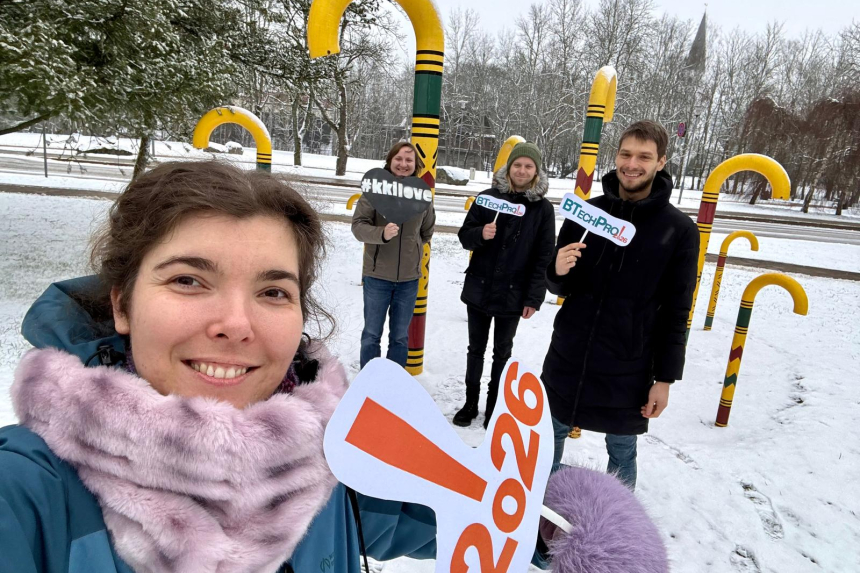
On 6–8 May 2026, the BTechPro! conference, organized by the Latvian State Institute of Wood Chemistry (LSIWC), will take place. What makes our conference stand out is not only its international scope and bold approach to engaging young researchers, but also the fact that a scientist – Kristīne Meile – stands at the forefront of its organization. Together with the organizing committee, Kristīne shapes the character of BTechPro! – an event where scientific quality and human dialogue come together, creating an inspiring platform for the growth of young scientists.
This dimension of science and human encounter will be especially vivid at the upcoming BTechPro! 2026 conference, which will be held in Riga and Sigulda as part of LSIWC’s 80th anniversary events, bringing together young researchers from across Europe and beyond to share experiences, knowledge, and ideas about the future of the bioeconomy.
What are the ideas and experiences that make this conference such a special event for young researchers? Answers to these questions are shared by Kristīne Meile – the main organizer of BTechPro! 2026 – in a conversation with the communications team of the Latvian State Institute of Wood Chemistry (LSIWC).
How It All Began: The First Steps on the BTechPro! Journey
LSIWC: Kristīne, you are one of the initiators of the BTechPro! conference. How did the idea for such an international conference specifically for young researchers come about?
Kristīne: Before BTechPro! we had our local institute’s student conferences at LSIWC, bet it felt like we could do something bigger and more exciting. My colleagues (Uģis Cābulis, Anda Fridrihsone, Inese Fiļipova, Arnis Kokorevičs, Miķelis Kirpļuks, Laima Vēvere, Ralfs Pomilovskis to name a few) were supportive of this ambition, so we set to work. That was an incredible opportunity for young scientists to plan the conference they wanted.
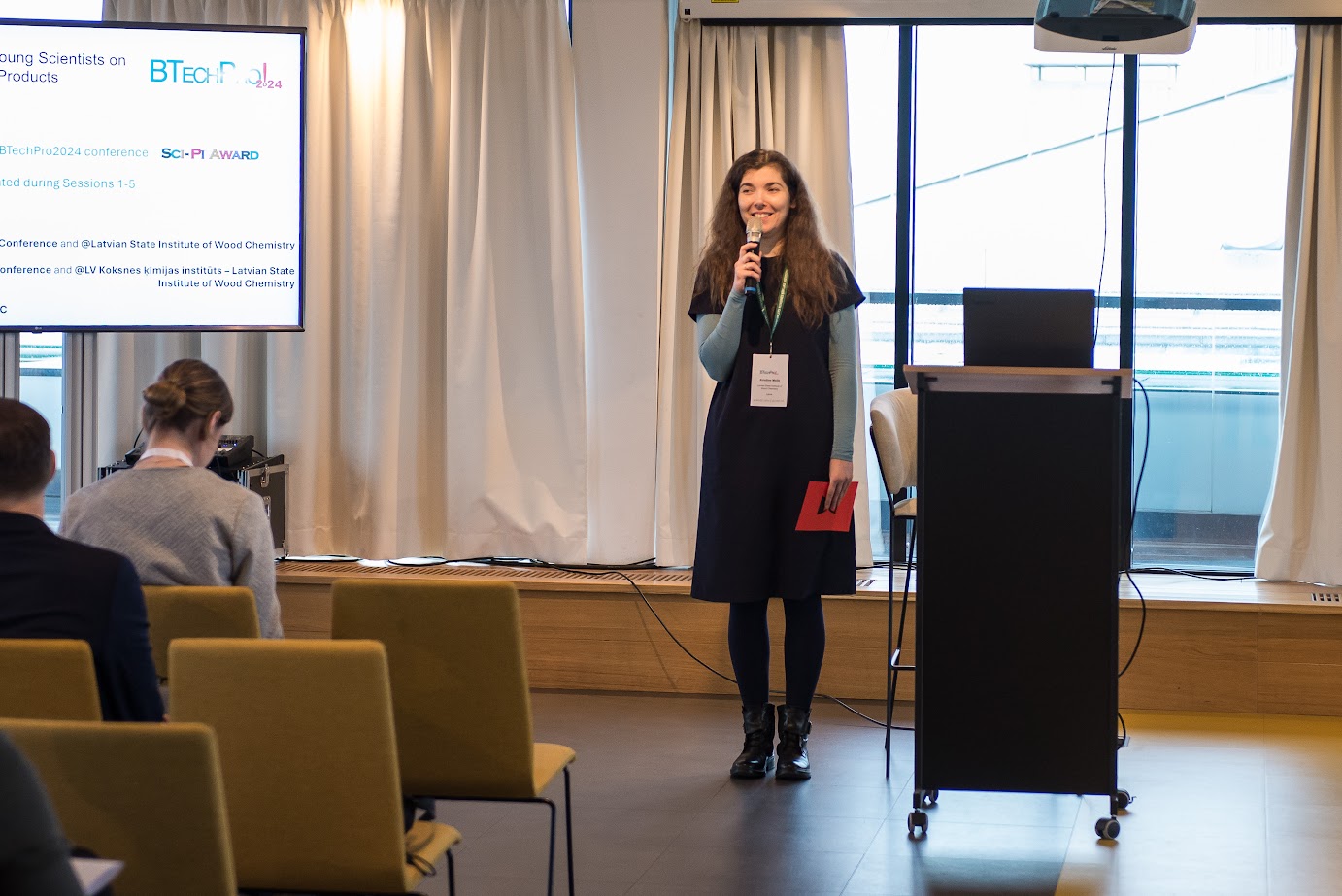
That was an incredible opportunity for young scientists to plan the conference they wanted.
LSIWC: What were the biggest challenges in the early years, and what gave you the confidence to continue?
Kristīne: The first conference BTechPro2022 was organised during rather extreme times – the pandemic had barely ended (about a month before the conference we still didn’t know for sure, if it would be possible to hold an onsite event). Russia had just attacked Ukraine, which was a shocking demonstration of inhumanity, and it had an impact on our own mood, and the feeling of international colleagues about travelling to the conference. With all these dramatic events, it wouldn’t make sense to worry about little things or little failures, when something was more difficult than expected. Besides, in the end the first BTechPro! conference turned out very nice, we received a lot of positive feedback, which is a great motivation to plan on!
BTechPro!’s Contribution to Young Researchers
LSIWC: How does BTechPro! differ from other conferences in the fields of biotechnology and biorefining?
Kristīne: We hold on to the objective to encourage young talents, so every one gets to speak at BTechPro! – all the participants give oral presentations. Often, in the big conferences students and young doctors participate with poster presentations, while more experienced researchers get the opportunity to speak. In our case even bachelor level students get on the stage before an international audience, and I am very, very pleased that so far all the presenters at BTechPro! have given really well-prepared and interesting talks. This means, that we manage to balance inclusiveness and supportiveness with high scientific quality.
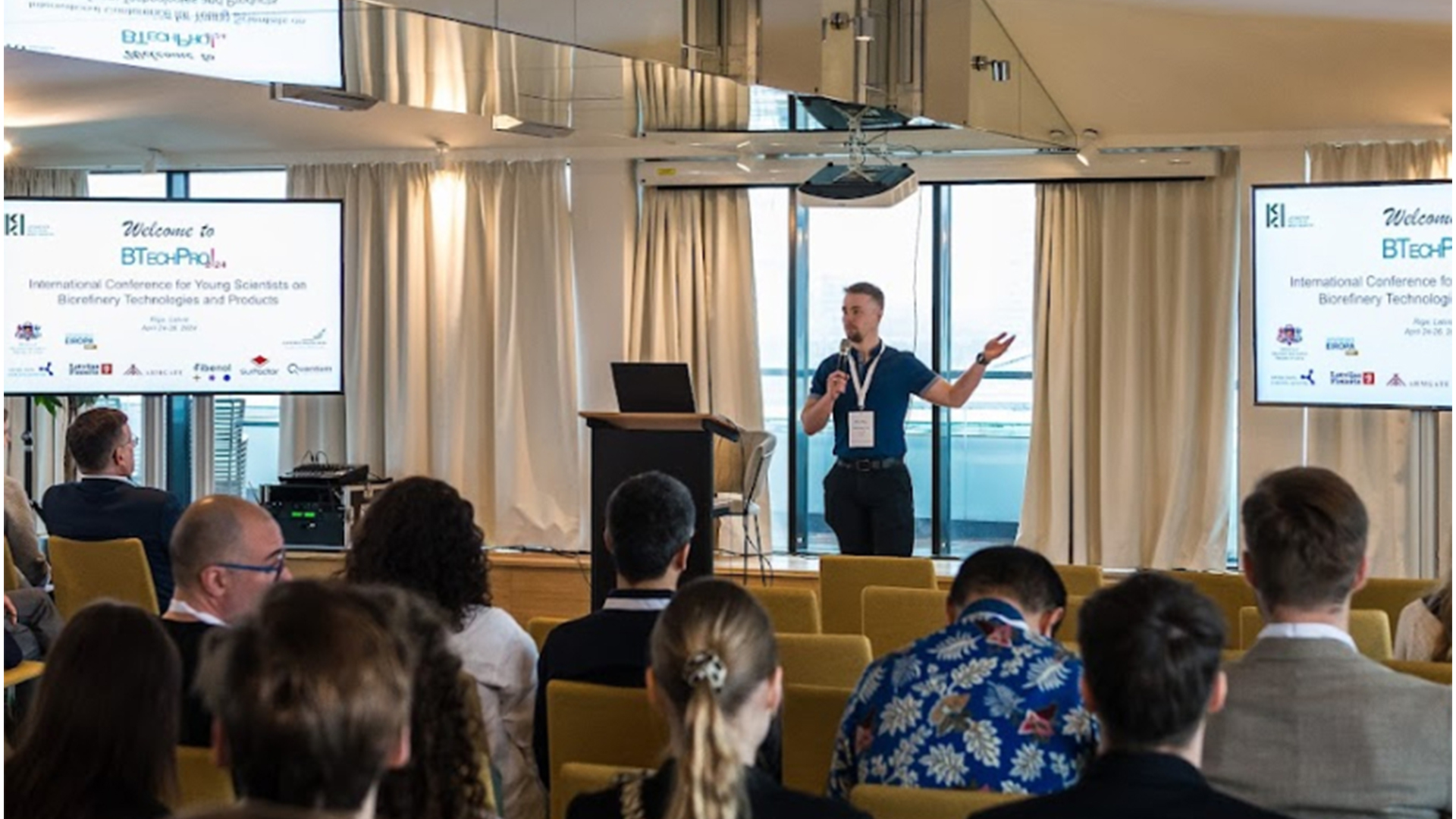
LSIWC: What do you personally consider to be the greatest benefit for young researchers – professional contacts, knowledge exchange, or the opportunity to present?
Kristīne: Participation in a conference surely gives a broader perspective, and inspiration though conversations with other people. I also want to point out that besides the scientific angle, we always include supradisciplinary topics, such as, academic career development, research integrity etc. The conference’s international environment is perfect for the attendants to discuss their various experiences, which can help with making decisions about life and career.
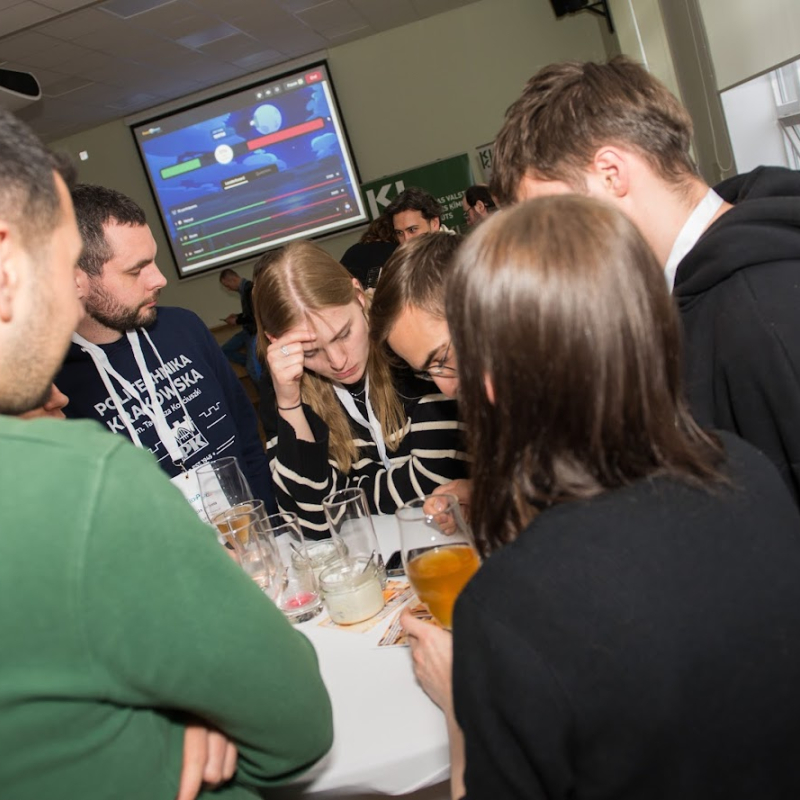
Participation in the conference allows you to broaden your horizons, gain inspiration, and discover new perspectives on research topics through conversations.
What to Expect in the BTechPro! 2026 Program
LSIWC: What will be the main highlights of 2026, and what is the concept behind the selected plenary sessions and workshops?
Kristīne: It has become a tradition to begin the conference with workshops in smaller groups, which is both an ice-breaking activity, and a chance to learn new skills. We offer a choice of three parallel workshops, which is actually quite tough, because all of them (creating presentations, intellectual property protection, LCA) are very tempting (laughs). The conference in 2026 will be particularly special with the event on the 6th May “Knowledge Transfer & Cooperation”, which will be part of the LSIWC’s 80th anniversary event series. I am very excited about this, because it will be a very joyous and inspiring event.
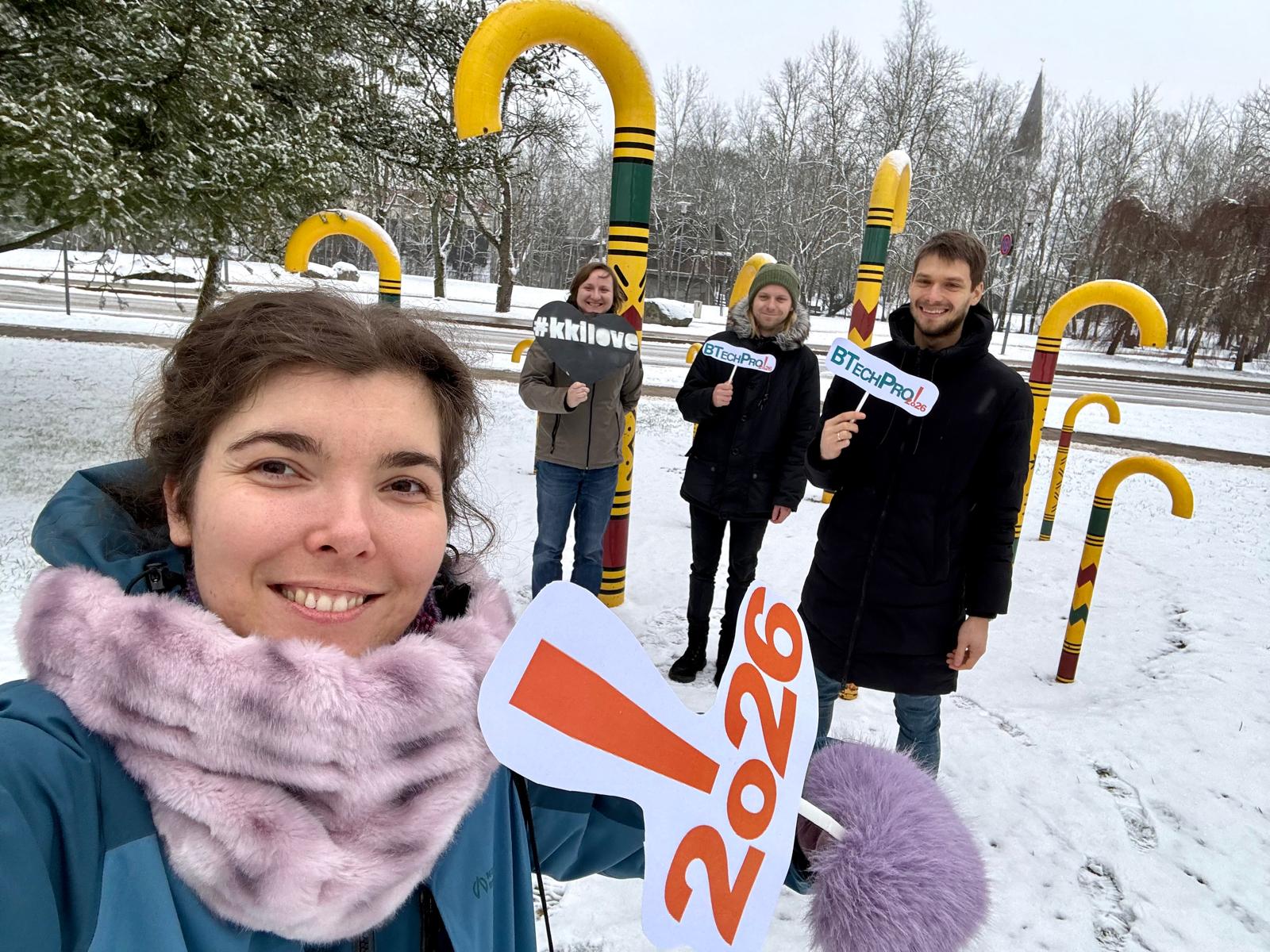
The conference in 2026 will be particularly special with the event on the 6th May “Knowledge Transfer & Cooperation”, which will be part of the LSIWC’s 80th anniversary event series. I am very excited about this, because it will be a very joyous and inspiring event.
LSIWC: How were the keynote speakers selected? (Was their academic influence more important, or their ability to inspire young researchers?)
Kristīne: We chose guest speakers based on recommendations. We were looking for people who would give lectures with a broader perspective – not just the specific experiment and result focus, but more about future opportunities.
LSIWC: Which workshops would you personally like to attend as a participant, if you weren’t the organizer?
Kristīne: As I said, this is a tough question! This year I would probably register for the workshop “Demystifying know-how: best practices in intellectual property protection for scientists” by Dr. Artis Kromanis, which is basically about empowering scientists and preparing them for the “real life”.
The Balance Between Science and Organization
LSIWC: You have studied lignocellulose pyrolysis products and the associated decomposition and fractionation methods. How does your scientific experience influence the content of the conference and the topics you focus on?
Kristīne: Biorefining is a very broad field, and my research (currently about the formation of anhydrosugar isomers in a wood pyrolysis biorefinery) is only a small, specific part of all the various technologies presented at BTechPro! conferences. In cascade biorefineries, when a sequence of valuable products are obtained from a single feedstock, versatility is power! I have always imagined how cool it would be to combine all the conference participants in a single system, where each one with their unique skills complement one another. But this kind of a teambuilding activity hasn’t happened, yet (laughs).
LSIWC: Is it possible to combine intensive laboratory work with leading such a large international conference?
Kristīne: Of course, there is no other option! Either way, it is always nice to do things that you like.
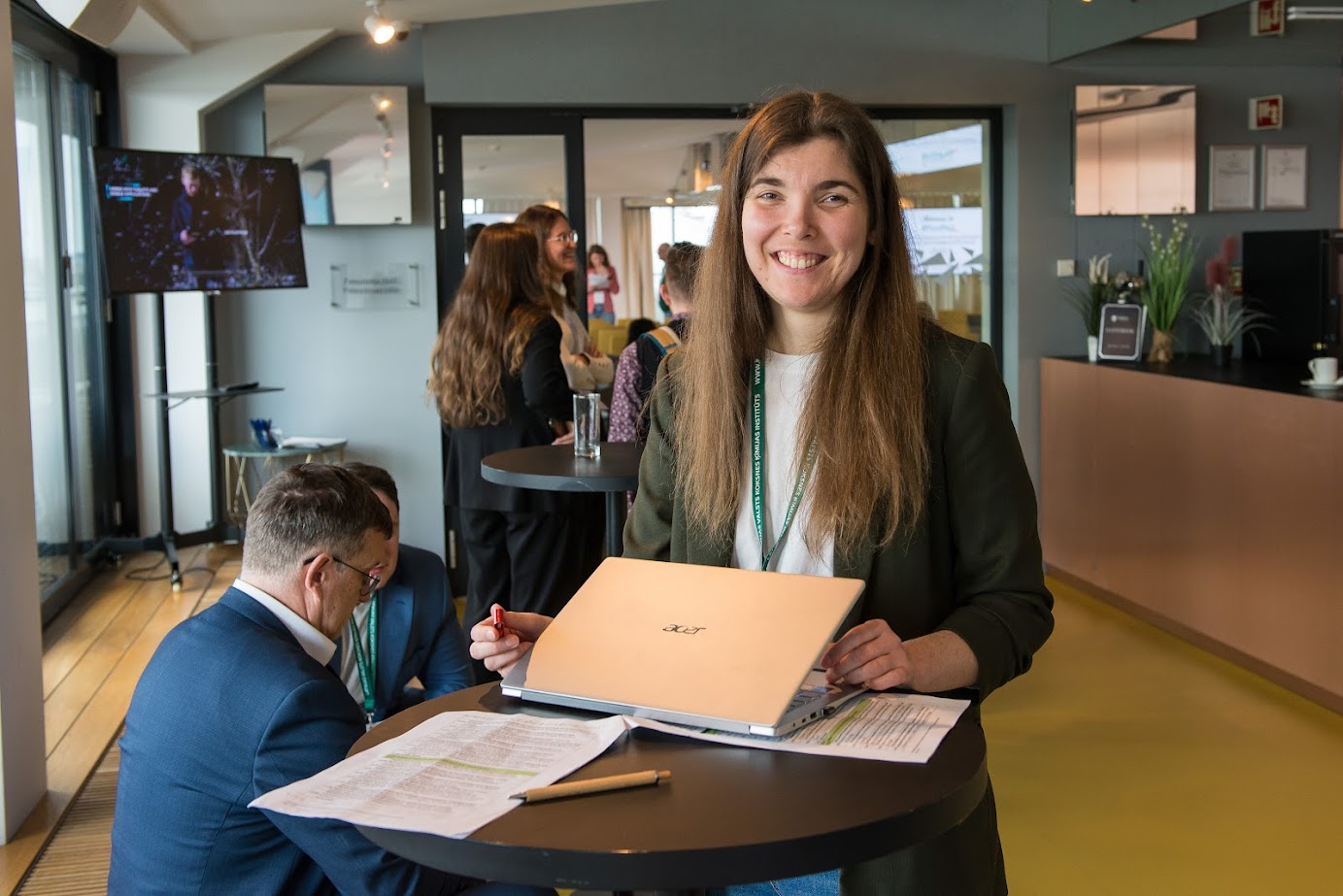
Opportunities and Support for Young Researchers
LSIWC: In your opinion, how has the situation for young researchers in Latvia changed in recent years?
Kristīne: In general, there are positive trends, new opportunities. International collaboration is becoming stronger, therefore there are more training opportunities for young researchers to get valuable experience abroad. The PostDoc Latvia program is also a significant turning point, which has already enabled many young doctors to become project and group leaders. I also want to mention the Latvian Association for Young Researchers (LJZA). It is celebrating its 20th anniversary this year, but to me personally it seems, that LJZA has strongly promoted important processes in the Latvian science ecosystem in the recent years.
LSIWC: What kind of support or environment would you like to see in Latvia to make it easier to develop an academic career and to participate in international projects?
Kristīne: I think it’s the same in all fields – [academic] culture, ethics, relationships need to be nurtured. And this is where LJZA steps in to strengthen the scientific community. I believe that this sincerity is the basis for everything, but we cannot ignore the need for adequate science funding. Practical improvements are needed for the new doctoral model, and even more so funding should be purposefully allocated to Latvian postdoctoral grants to avoid the funding gap, which we, for example, felt between the two ERDF co-funded PostDoc Latvia programmes. Maintaining next generations of researchers is a priority, because we want to live in a successful society, but without innovations it might be tricky to achieve an economic breakthrough.
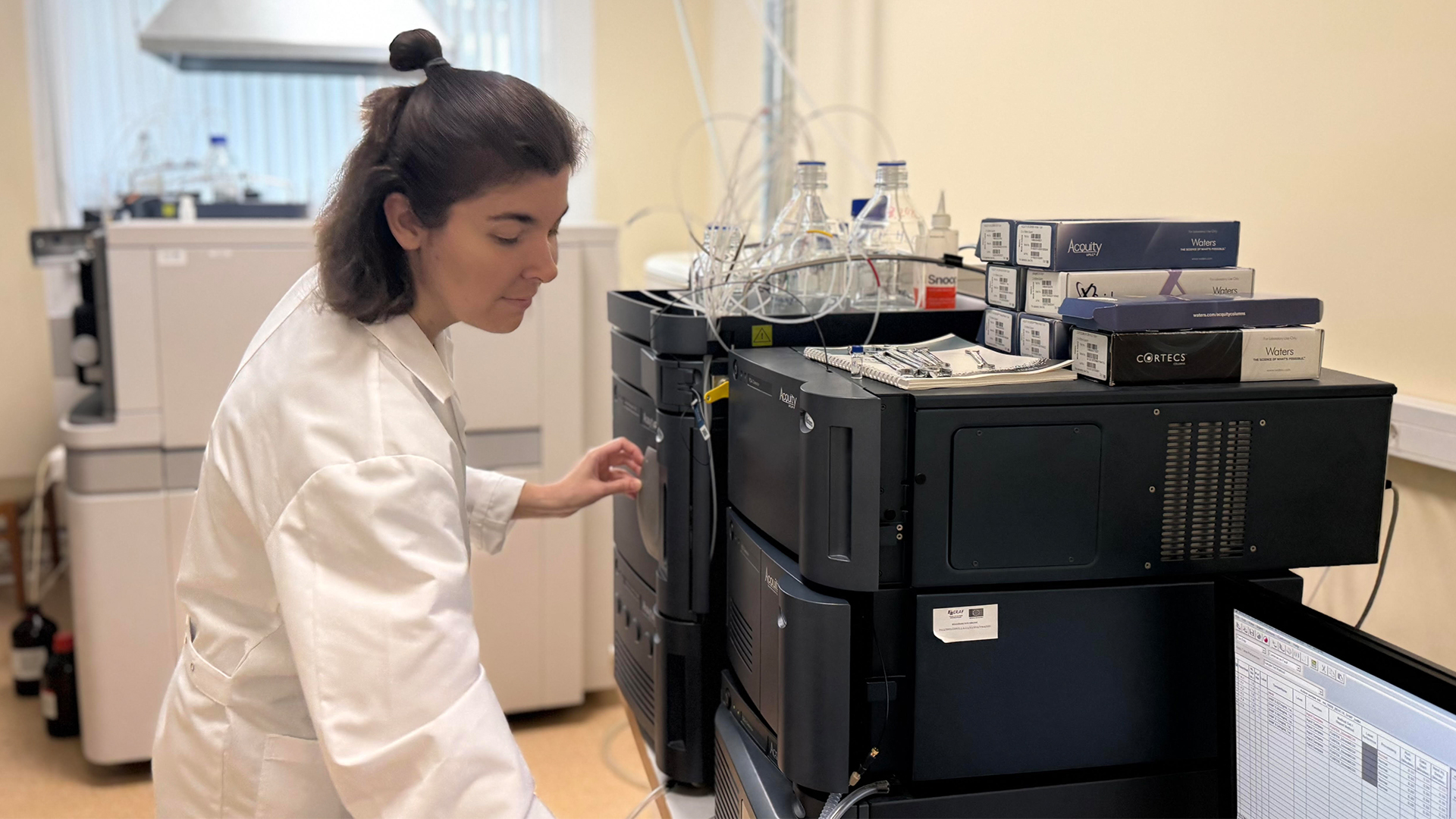
Maintaining next generations of researchers is a priority, because we want to live in a successful society, but without innovations it might be tricky to achieve an economic breakthrough.
The Future of BTechPro!: Goals and Aspirations
LSIWC: How do you see BTechPro! in 10 years? Could it become the central platform in the Baltic region for young researchers in the bioeconomy?
Kristīne: I am certain that BTechPro! is valuable not only on Baltic, but European scale. This is based on the LSIWC’s collaboration networks, which span the whole Europe and beyond. I would be happy to see BTechPro! go abroad – it would be really interesting for the organisers to plan some of the next editions in cooperation with organisations in other countries. It is very important for BTechPro! to hold a high scientific quality bar, so there will be more emphasis on publishing conference proceedings in a widely recognised format.
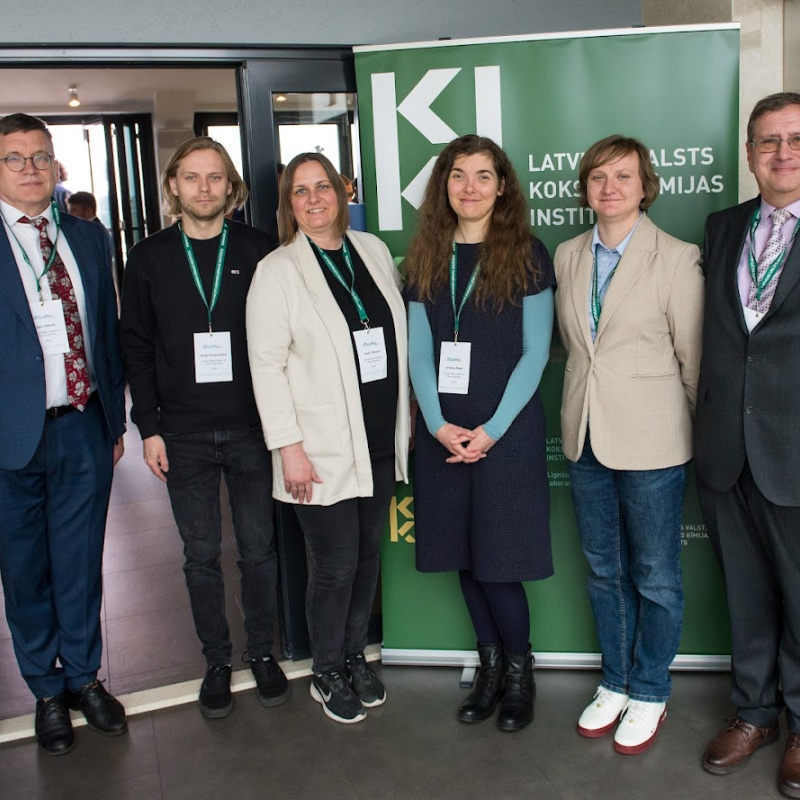
I would be happy to see BTechPro! go abroad – it would be really interesting for the organisers to plan some of the next editions in cooperation with organisations in other countries.
LSIWC: What are your hopes for BTechPro! 2026? What would bring you the greatest satisfaction after the conference concludes?
Kristīne: After this year’s peculiar weather, my biggest hope is that early May will be nice and sunny in 2026, so that our guests can enjoy the best experience in Riga and Sigulda. I see the conference as a serious responisibility, because many participnats visit Latvia for the first time during BTechPro! That’s also why we try to enrich the conference with pleasant content outside the scientific sessions. It sets a good background for networking. Conference organisers are just your regular hosts – glad if the guests are satisfied with the food and happy (laughs).
On Moments of Inspiration
LSIWC: Is there a moment from previous conferences that has stayed with you as particularly inspiring or moving?
Kristīne: There was a specific sincere moment in 2024, which immediately comes to mind. One of the Lithuanian participants brought an Ačiū! teddy bear, as a thank you for the responsive communication before the conference (registration, Sci-Pi contest formats etc). It is very nice to receive such positiveness from the participants.
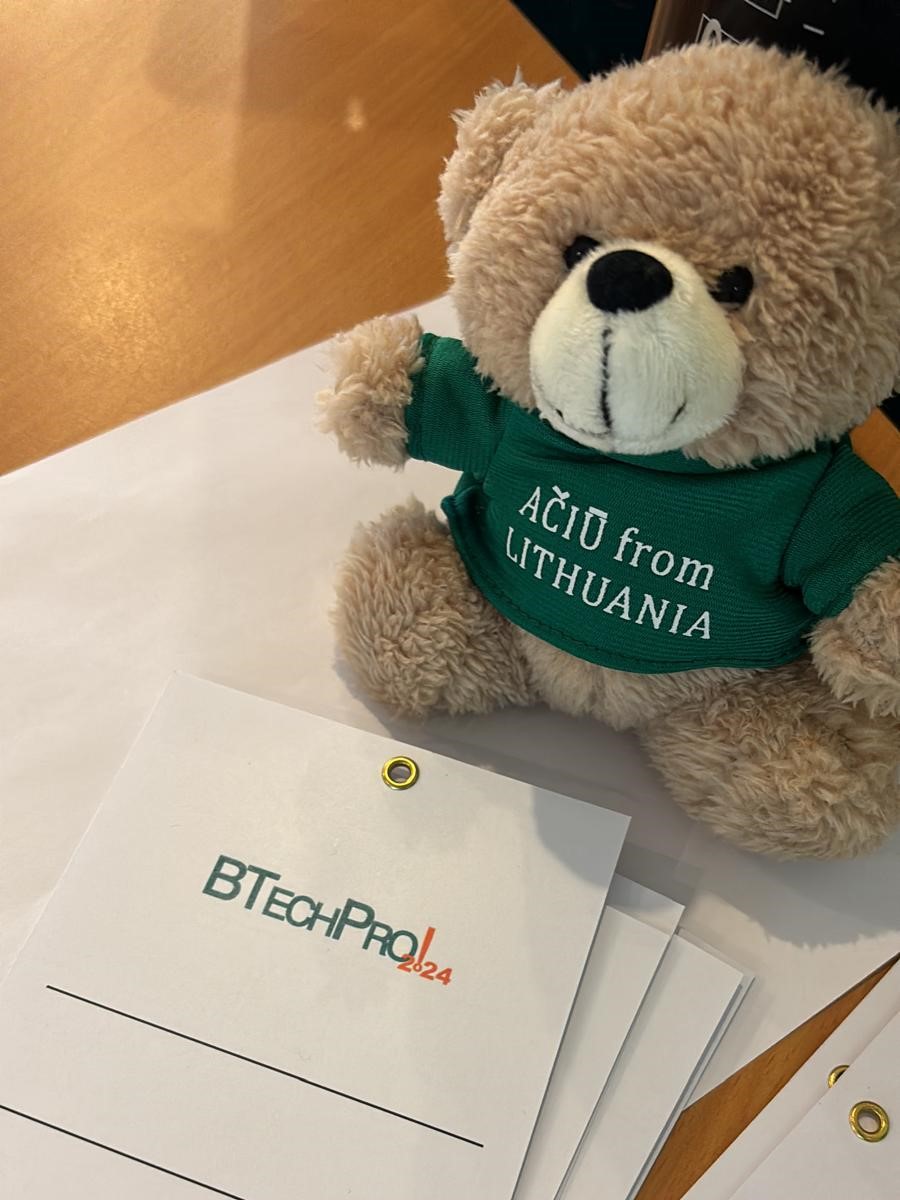
LSIWC: What do you personally learn from the questions and energy of young researchers?
Kristīne: The focus on young researcher energy brings back a funny memory! When discussing the possible social program with people from a historical, fancy venue, they were kind of hesitant. And only later it came to me that outside the academic circles “young researchers” gives the impression of active five- or perhaps seventeen-year-olds with magnifying glasses and tweezers for collecting bugs! And this is where I want to clarify, that in the BTechPro! context “young scientists” are university students and postdoc level researchers. So, what I admire most in BTechPro! participants in their high motivation and the sense of mission, because the main objective of the biorefinery field, after all, is to save the world from the climate crisis, that we are facing.
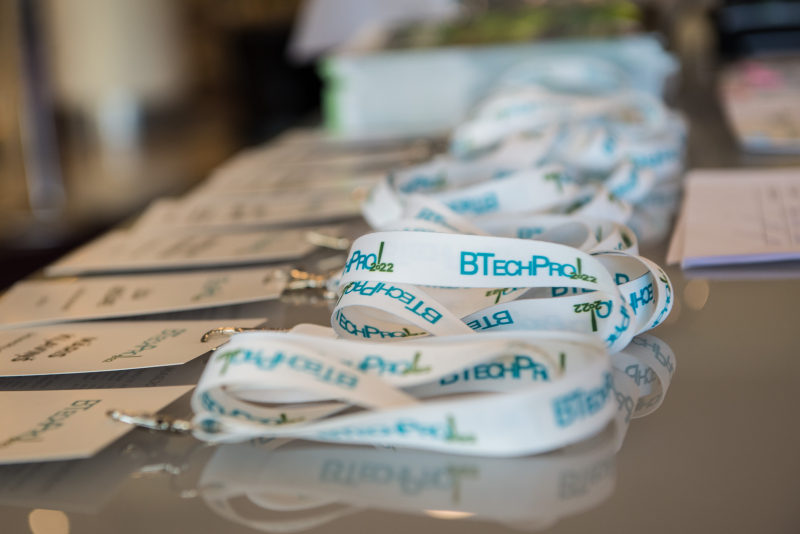
The main objective of the biorefinery field, after all, is to save the world from the climate crisis, that we are facing.
LSIWC: You are not only a researcher and a conference organizer, but also an author. Your story “Loss of Smell and Mind in Certain Cases of the Undead” plays between science, humor, and thriller elements. Is writing for you a continuation of science in another form, or a completely different space where you can let your imagination run free?
Kristīne: Creative writing is surely not an extension of science, because in my case writing was first before science! I went to a high school which was strictly language and literature centred, chemistry came later. By the way, I think it’s not strange for researchers to write fiction at all. Planning experiments and creating art has a lot in common – creativity, inspiration, as well as a specific skill set. I know that there are several writers (both published, and unpublished) working or having worked at our institute.
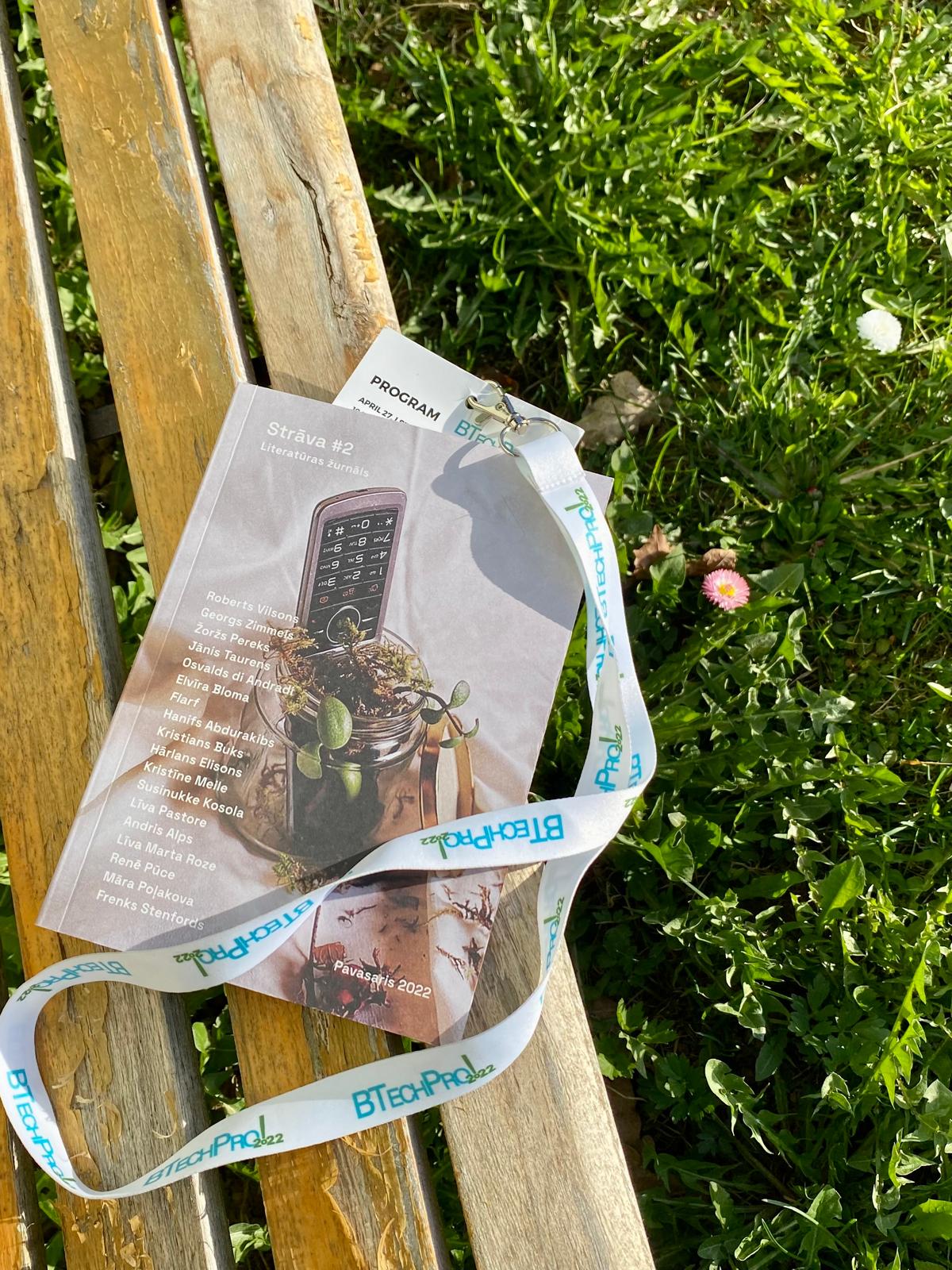
LSIWC: In your story “Swings” you describe everyday childhood life – queues for milk, kiosks, the opening of the first “Rimi” supermarket. Your stories remind us that scientists come from very concrete social experiences. Do you think it is important that scientists also bring this human experience with them to conferences – for example, BTechPro! – and not only experimental data?
Kristīne: Yes, definitely, the personal experience is very important. Especially, for international young scientist events, because talking with students and researchers from other countries can be very insightful – each country has its specific academic career model, you can learn about various best and not that successful practices/traditions.
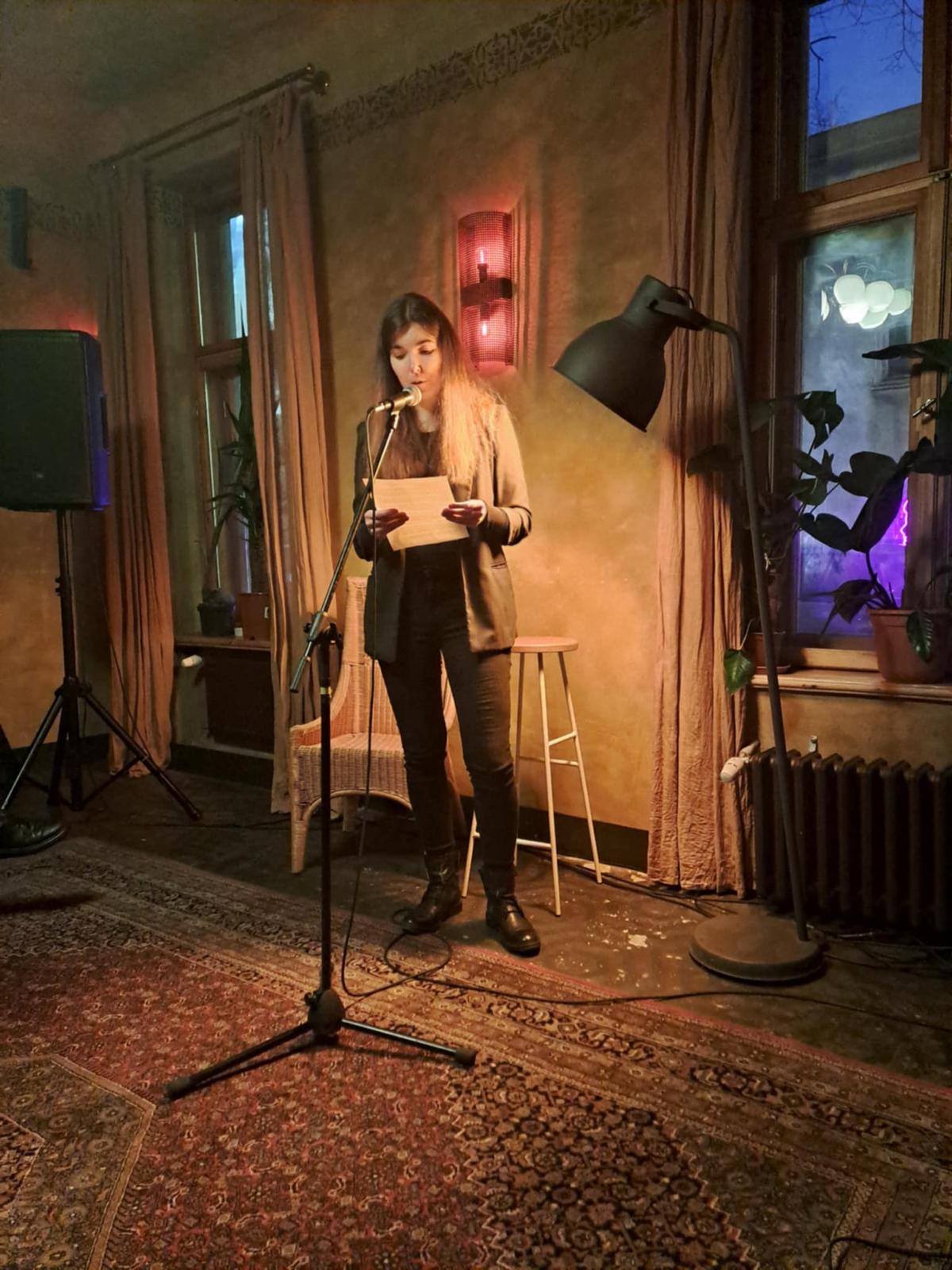
LSIWC: Your literary experience shows that a scientist can exist not only in the laboratory, but also in literature, philosophy, and art. Do you think young researchers should practice more this ability – to think beyond their own field and to use creative approaches?
Kristīne: You have to be able to think outside the box, at the same time sticking to strict norms of the scientific method. By the way, an underappreciated way to create creativity is sharing ideas. I’ve been fortunate enough to have met wonderful scientists, who, despite being from slightly different fields, listened about my research carefully, asked questions and offered their perspective. Conversations like these can be good catalysts to leave your mind box. And that is why we need conferences like BTechPro!.
